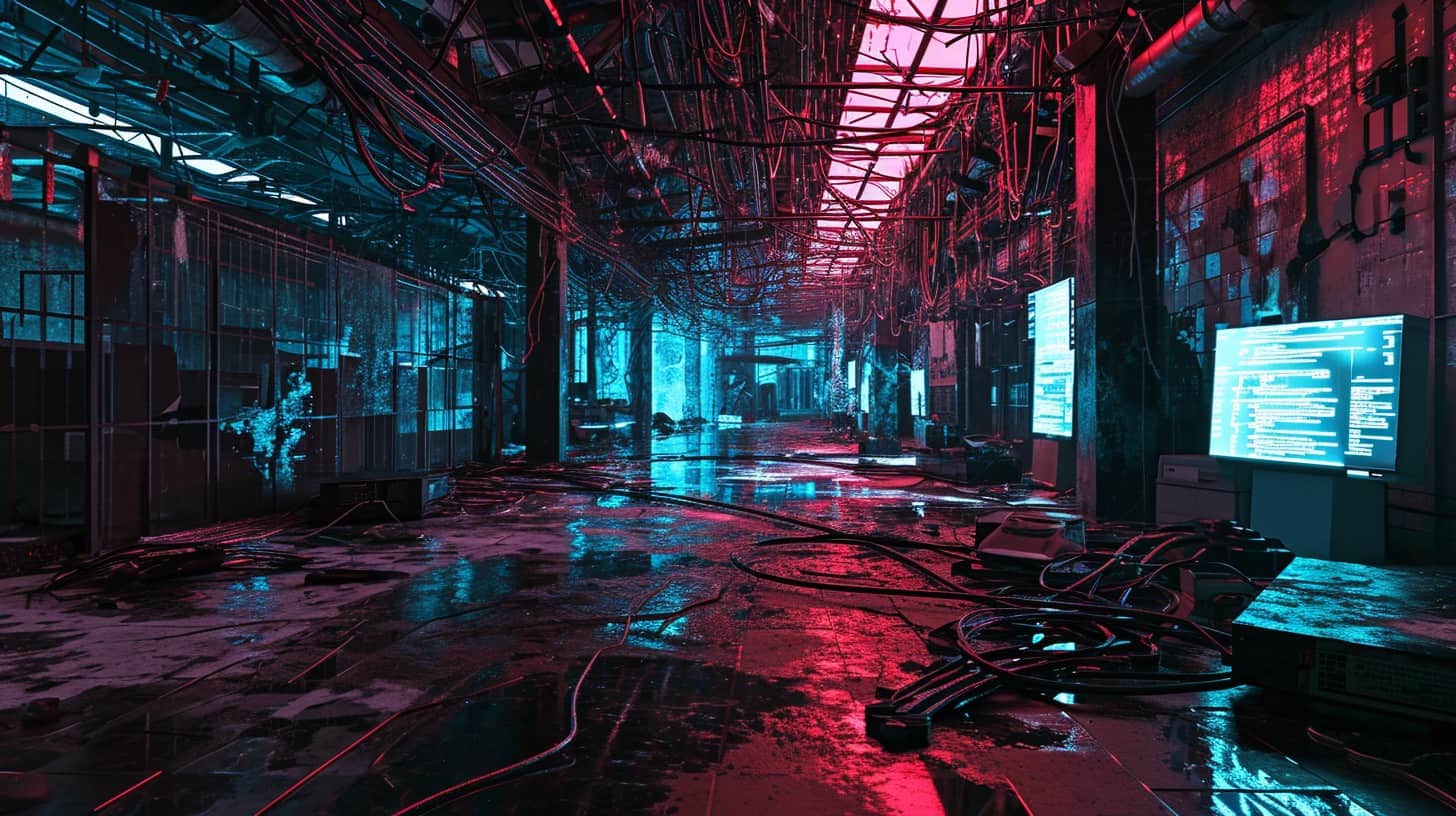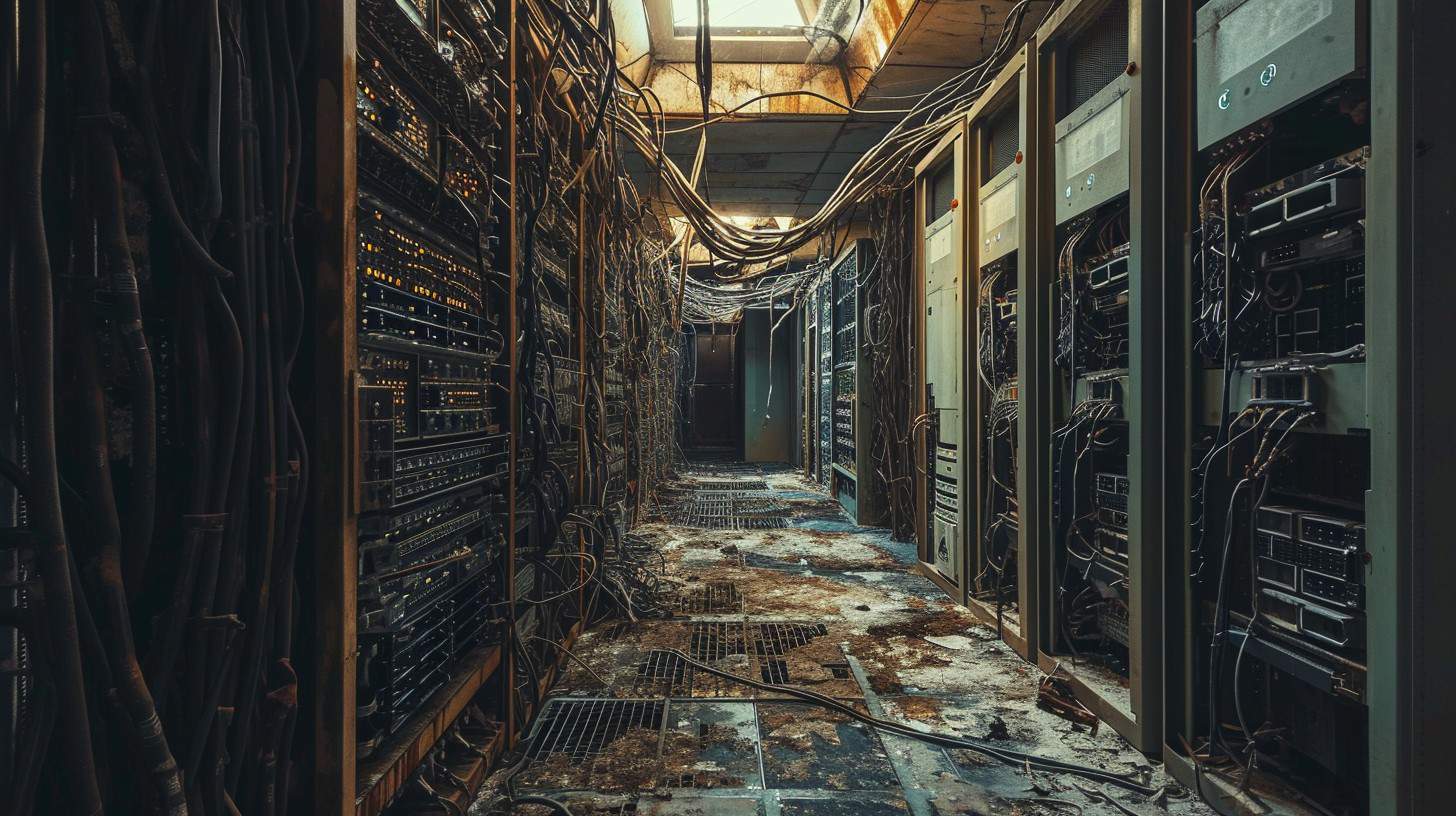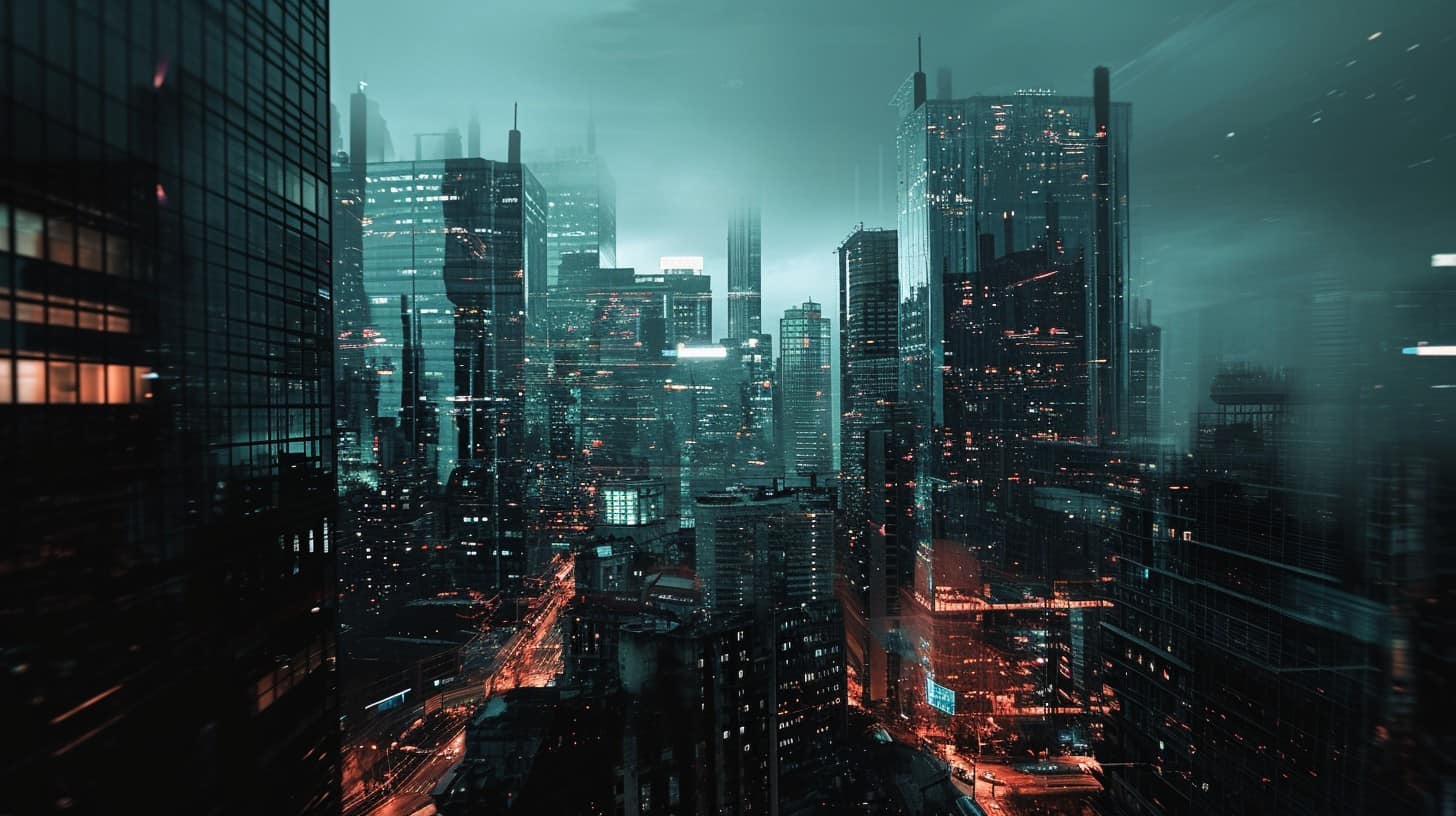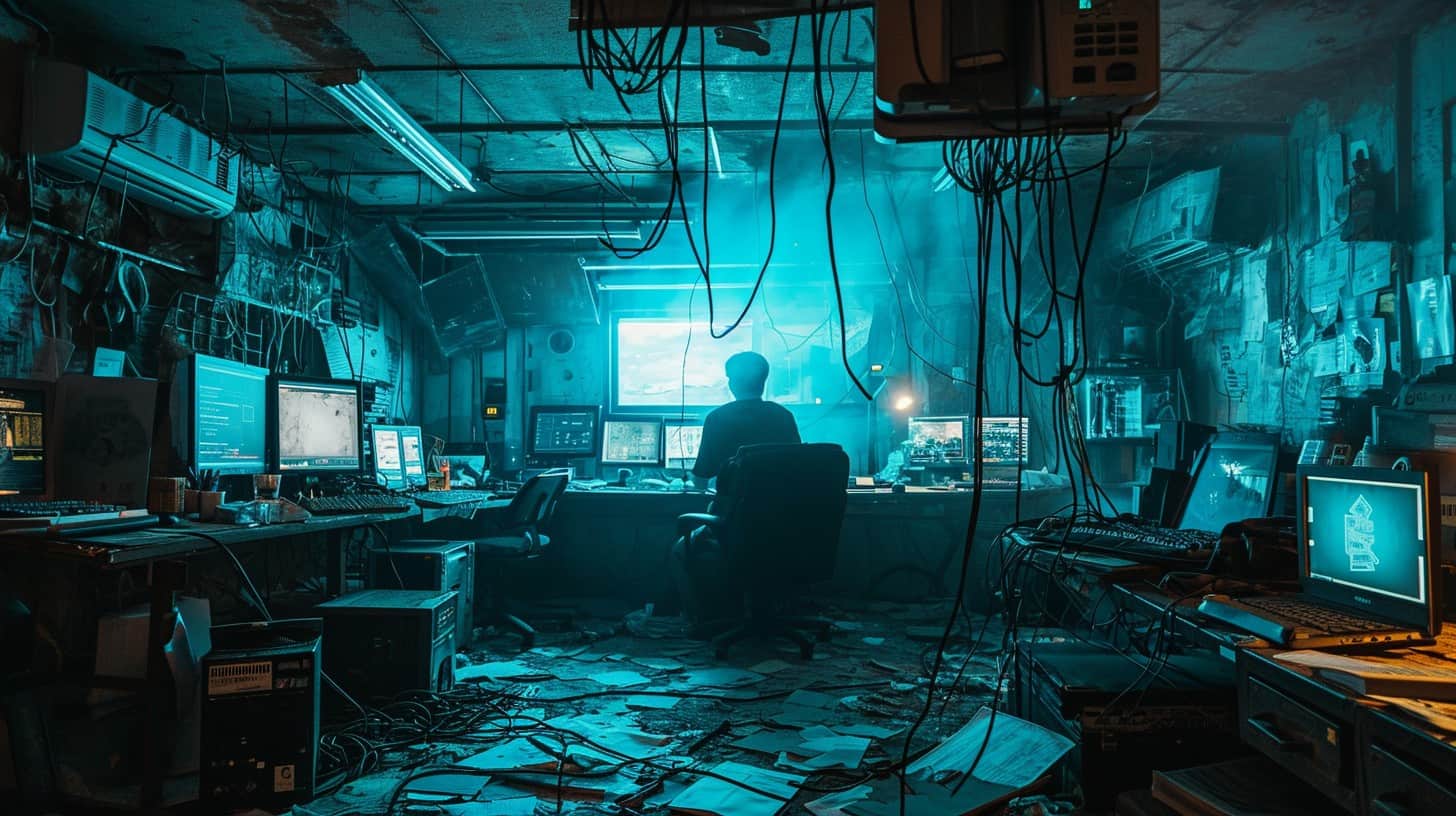Ever feel like your online conversations are filled with more bots than actual people? Trust me, you’re not the only one. I’ve stumbled into that bewildering digital maze myself – and what a trip! There’s a buzz about this “Dead Internet Theory,” which posits that AIs have virtually taken over our web interactions.
So let’s take a stroll down this thought-provoking path together, as I share some intriguing clues to decipher whether we’re really just chatting in an echo chamber created by clever algorithms.
Buckle up; it’s going to be quite the adventure!
Key Takeaways
The Dead Internet Theory suggests many online profiles and interactions might be run by bots instead of real people.
Reports like Imperva’s from 2021 show that bot traffic could make up almost half of all internet traffic, with good and bad bots both active.
Observations on Reddit, Twitter, and YouTube raise concerns about artificial engagement through likes, comments, and views possibly being driven by algorithms rather than humans.
If the theory is true, it has big implications for how we trust what we see online – from trending topics to social media friendships.
A potential shift towards a more authentic internet in response to this theory could lead to an increase in human interaction and a decrease in automated activity.
Table of Contents
Understanding the Dead Internet Theory

So, we’ve introduced our quirky topic – now let’s dive right into what the Dead Internet Theory is all about. Picture this: you’re scrolling through your favorite social media platforms and start wondering if the people you’re interacting with are real.
The Dead Internet Theory suggests that a lot of what we see online might not be from humans at all! Instead, it says bots and AI-generated content could be running the show.
Now, I don’t want to freak you out – but imagine software agents pretending to be people on Twitter or Facebook. Creepy, huh? Some folks think these bots are everywhere, mimicking how humans talk and even making posts go viral.
They say things like ChatGPT or other smart computer programs could trick us into thinking they’re human. This theory got its legs when more bot traffic popped up around 2016-17, making everyone side-eye their internet pals a little bit harder.
Origins and Development of the Dead Internet Theory

Let me tell you, the Dead Internet Theory didn’t just pop up out of nowhere. It’s like it slowly crept into our chats and thoughts, probably starting in those nooks of the web where geeks and tech heads hang out to spill their latest theories.
Picture this: groups huddled in online forums, sharing spooky tales about how bots might just be pulling the strings behind our screens.
You’ve got places like 4Chan or Wizardchan where folks love to dig deep into odd ideas; that’s likely where this whole wild concept got its legs. They noticed something fishy—like how certain tweets seemed a little too robotic or YouTube comments were eerily similar—and bam, gears started turning.
The suspicion caught on as more people grokked that maybe we’re all just shouting into a void packed with echoes from software-designed bots pretending to be human.
Key Claims and Evidence Supporting the Theory
So, buckle up, fellow web-surfers—the Dead Internet Theory is serving some juicy claims backed by curious evidence that’s as eye-opening as Linus Tech Tips discovering a hidden feature on the latest motherboard.
(And trust me, you don’t wanna miss this deep dive!).
Large language models
Hey, let’s chat about these big-brain AI things called large language models. You’ve probably heard of GPTs and ChatGPT, right? These clever bots are like wizards with words, churning out text that can make you think you’re chatting with a real person.
I mean, it’s nuts! They write poetry, crack jokes—even come up with recipes for lasagna that’ll have your taste buds throwing a party.
Now, here’s the kicker—these AIs could be behind tons of profiles online. Imagine scrolling through your feed and half the ‘people’ you see are just lines of code pretending to have a life! Crazy fake influencer profiles can rack up likes and followers faster than a cat video goes viral.
We’re talking serious bot action every time we hop online—and who doesn’t love getting duped by an algorithm? Welcome to the future?
Imperva Bot Traffic Report 2021
So, I’ve just rambled on about those large language models you’ve probably encountered lurking around the web, spouting out human-like text. Now, let’s pivot to something equally creepy—but this time, it’s about bots. And not the cute R2-D2 kind, but the kind that apparently make up over half of the internet’s traffic!
| Year | Imperva Bot Traffic Report Findings |
|---|---|
| 2021 | Bots accounted for 40.8% of web traffic. |
| Good bots vs. bad bots – good bots at 15.2%, bad bots at 25.6%. | |
| The majority of bots were impersonators causing security breaches. | |
| Search engines were the most common good bots. |
Boy, oh boy, you thought you had lots of friends online, right? But imagine scrolling through your social feed or hitting up your favorite forum only to realize you might be chatting with more bots than people! It’s like throwing a party and realizing half your guests are mannequins.
What’s even more bizarre is thinking about how these bots might be influencing trends, shaping discussions, or, you know, trying to sell you stuff. It’s like every time I try to deep dive into the latest geeky gadget, I’ve got to wonder if I’m getting the real scoop or if some bot’s trying to play me. The struggle is real, folks.
Alright, enough bot talk. Let’s hop to the next bit, where things get even more Twilight Zone-ish. I mean, if you thought the internet being swarmed by bots was wild, wait till you hear the rest…
Observations from Reddit, Twitter, YouTube
Hey there, fellow geeks! I’ve been diving deep into the rabbit hole of the Dead Internet Theory. It’s like a spooky digital ghost story where we’re not sure who’s human and who’s a bot anymore.
- Reddit surprised us all by making us pay to peek at user data. This got people talking about bots and AI lurking in our online hangouts.
- Twitter, now under Elon Musk’s wing, is another mystery pot. Some say loads of accounts are just sophisticated robots pretending to be humans. Creepy, right?
- YouTube isn’t safe from this bot invasion, either. We’ve seen weird stuff where fake views get counted, but real ones don’t. That messes with what videos we think are hot.
Implications of the Dead Internet Theory for Digital Life

So, this Dead Internet Theory has got us thinking, what if most of our online pals are actually just clever bots? Imagine scrolling through your feed and realizing that half the “people” liking your posts might not even be human.
Kinda puts a damper on that warm fuzzy feeling of getting all those likes, right?
Now, let’s get real for a sec. If this theory holds any water, we’re basically living in a digital ghost town where AI runs the show. This means trusting what we see online gets trickier every day.
Those trending topics? Possibly pushed by bots. That viral meme? Maybe cooked up by an algorithm looking to get a few laughs or spark some outrage.
Talking about trust issues! We start to wonder who’s behind the screen — is it Joe from accounting sharing cat videos, or just another piece of software designed to act like him? The lines between humans and machines blur faster than my phone battery drains (and trust me, that’s fast!).
It turns out our little corner of the internet could be more artificial than we ever imagined.
And think about chatting with someone on social media, cracking jokes and sharing stories — you’d want to believe there’s an actual person typing away out there. Yet here comes the Dead Internet Theory suggesting hey buddy, joke’s on you… literally! You might as well have been talking to yourself because Mr. Funny Comments could very well be Mr. AI Bot in disguise.
Guess it makes sense why people are starting to squint at their screens suspiciously; can’t blame them when chatbots could pass off as long-lost friends without breaking a virtual sweat! Does it make anyone else feel like they’ve walked into an episode of Black Mirror? Or is it just me getting spooked over here, considering how deepfake videos and echo chambers keep messing with our heads?
Anyway you slice it; digital life sure ain’t what it used to be if we’re possibly clicking ‘like’ and ‘subscribe’ for an audience mainly made up of zeros and ones wearing pixel costumes pretending to care about our latest beach selfie or home-cooked meal snap… and yet here I am still posting – go figure!
Unraveling the Internet of Bots: A Deeper Look at the Dead Internet Theory

Let me tell you, this Dead Internet Theory isn’t just some spooky campfire story. It’s like peeling an onion; the more you dig, the weirder it gets. Picture this: a world where your online pals might not even be human! They could be clever bots or AIs, churning out posts and acting like one of us.
The theory throws in a curveball – what if nearly all that digital chatter is just machines talking to each other?
Now, I’m no stranger to robots – some of my best friends are vacuum cleaners (kidding… sort of). But here’s something wild: Imperva’s Bot Traffic Report said that 64% percent of internet traffic was non-human back in 2016.
Just let that sink in! If we’re on a train headed for AI-ville, then Barracuda Networks has pretty much confirmed our tickets, with their report pointing to only 36% human traffic today.
That means while I’m laughing at cat videos or crying over movie trailers on YouTube, there’s a chance those views aren’t coming from actual tearful or giggling humans at all. Wild thought, right?.
The Impact of the Dead Internet Theory on the Future of the Internet

Okay, so let’s get real about this Dead Internet Theory and how it could mess with our future online adventures. Imagine surfing the web, where half of those “people” you meet are just lines of code pretending to be human.
Gives me the creeps! But hey, that’s what some folks believe – a digital world crowded by bots, fake news generators, and echo chambers that just parrot back whatever we want to hear.
Here’s the kicker – if we start buying into this idea big time, companies might change up their game. They could pour more dough into making smarter AI chatbots, or even try new ways to make sure there’s a flesh-and-blood person behind each click and comment.
Might not sound like fun for our bot buddies, but for us humans? We could end up having deeper chats and building tighter communities without some spambot sliding into our DMs.
So buckle up! If things go in this direction, gearheads like us might see an Internet that feels more genuine – fewer trolls under every bridge and way less spam clogging our feeds.
Just think about going on Twitter or YouTube, knowing you’re chatting with real peeps… Pretty refreshing!
And now, onto wrapping this thing up – except wait… we don’t do wrap-ups here! Let’s dive straight into what comes next: talking conclusion without actually concluding anything (wink).
Where Do We Go From Here?

So, we’ve dived deep into this wild idea that robots might be running the show online. Do I think the internet has kicked the bucket, with bots pulling all the strings? Maybe not entirely, but there’s enough odd bot business happening to keep my eyebrows raised for sure.
Hey, next time you get a like on your cat video or a retweet on your clever joke, just give it a wink – could be some AI out there appreciating your style! Keep surfing those digital waves, and who knows what crazy theory we’ll unravel next!
FAQs About Dead Internet Theory
What’s the Dead Internet Theory all about?
Oh, it’s this wild idea where folks think most of the internet is run by bots! Yeah, like AI bots and social bot accounts doing their thing instead of real people. It’s as if we’re living in an echo chamber with a bunch of computer spam – pretty spooky, huh?
Are YouTube channels and Twitter just full of bots then?
Well, you know how sometimes things feel too good to be true? Some say that YouTube’s got these click farms boosting views and Twitter’s filled with bot accounts retweeting stuff… Makes you wonder who’s real out there!
Does artificial intelligence pass the Turing test on social media or what?
You’ve nailed it! The Turing test checks if AI can chat like us humans without giving itself away. Now imagine an online community typing away, but behind those tweets might be a smart AI fooling us into thinking it’s Joe Rogan or some other big shot!
Is all that history about Internet Explorer linked to the Dead Internet Theory somehow?
It’s kinda like connecting dots from different puzzles… So while Internet Explorer is ancient history (RIP), the theory dives into how companies use artificial intelligence to shape what we see online today.
Hasn’t misinformation been around forever? How does this theory change anything?
Ah yes, conspiracy theorists are having a field day! Remember Pizzagate or QAnon stuff? With things like deepfakes and filter bubbles from our ‘friendly’ social-media companies popping up left and right…it’s no wonder everyone’s scratching their heads trying to figure out fact from fiction.
I heard someone mention ‘filter bubble’—what in tarnation is that exactly?
Hah! Imagine being wrapped up in your own little world where everything you see online just agrees with you… That’s your “filter bubble!” Social networks use data mining tricks so all you get are echoes of your thoughts – no surprise party invitations coming through there!


